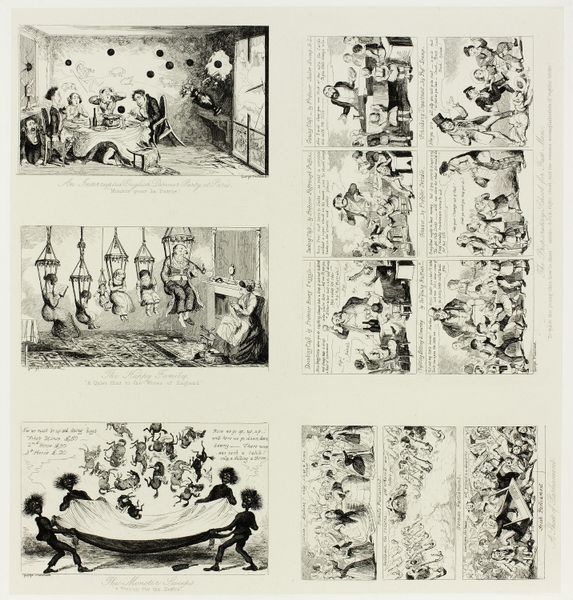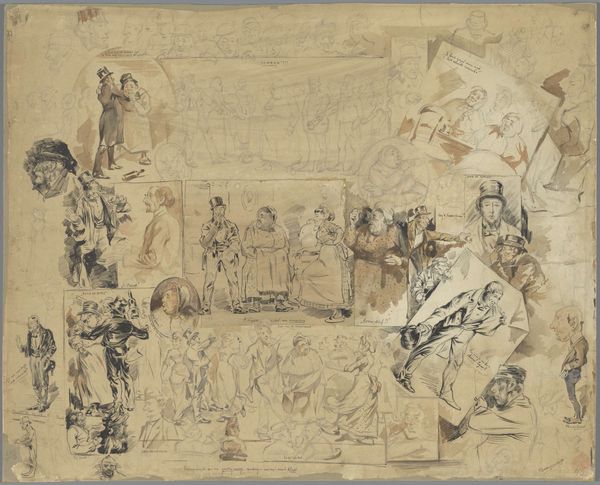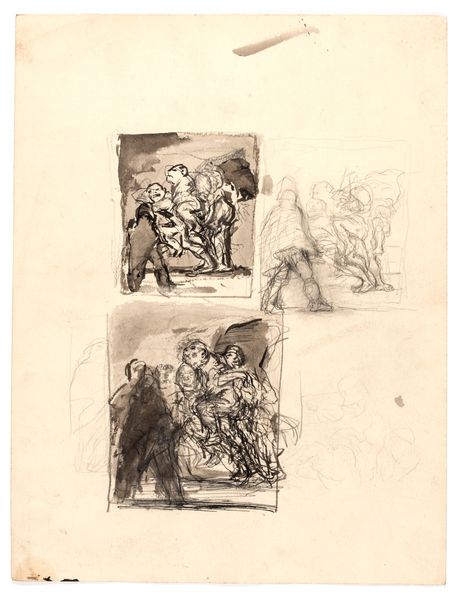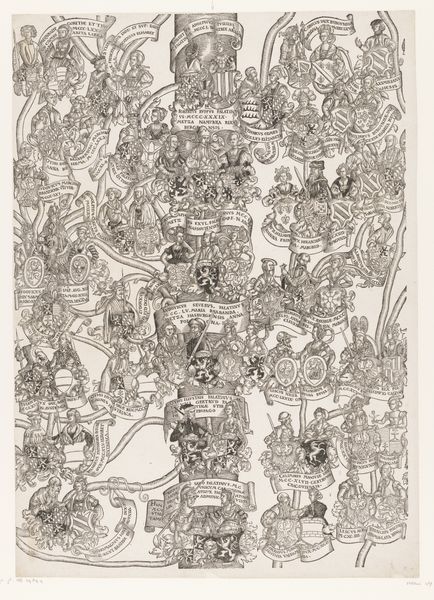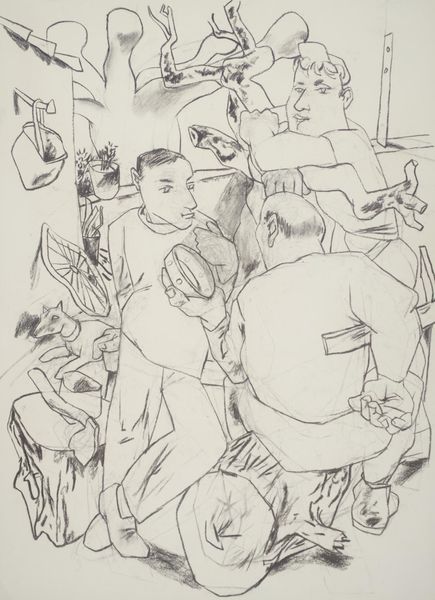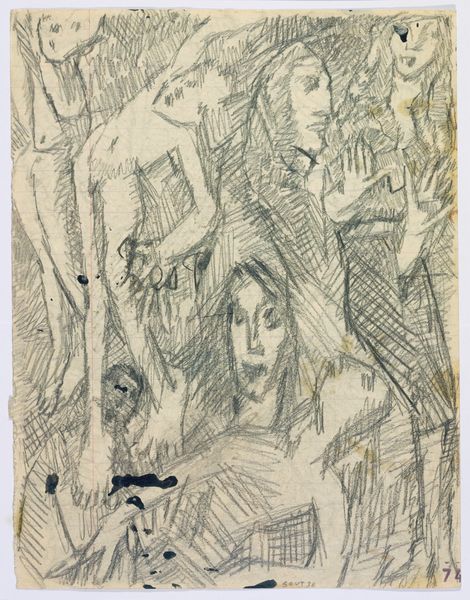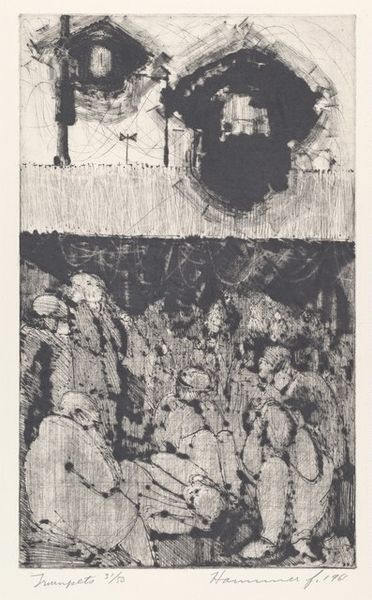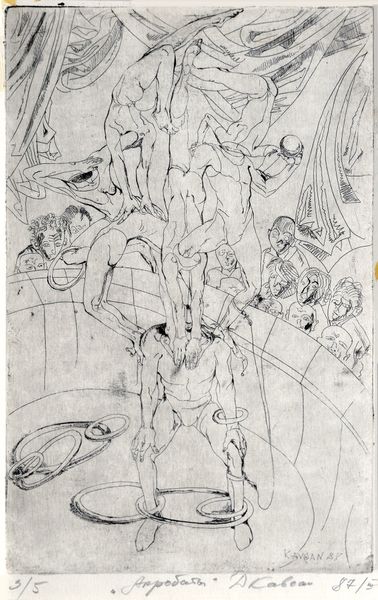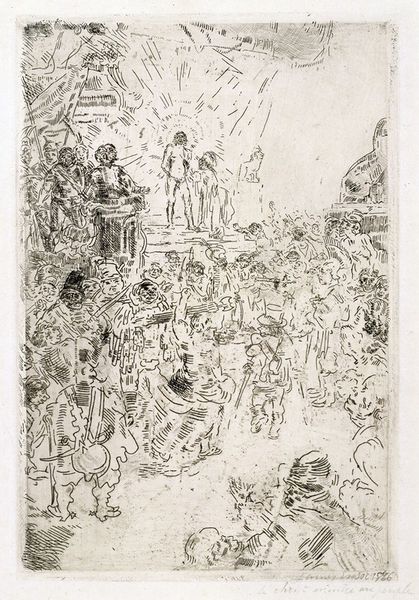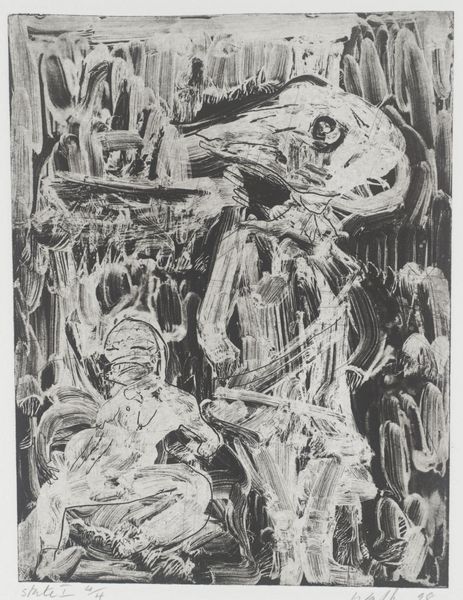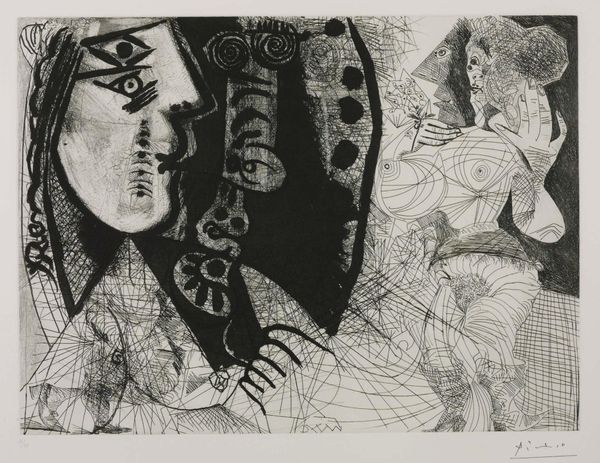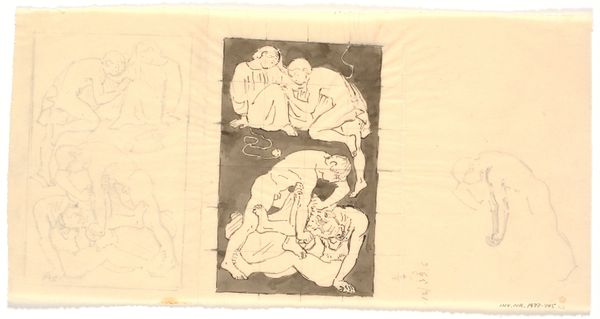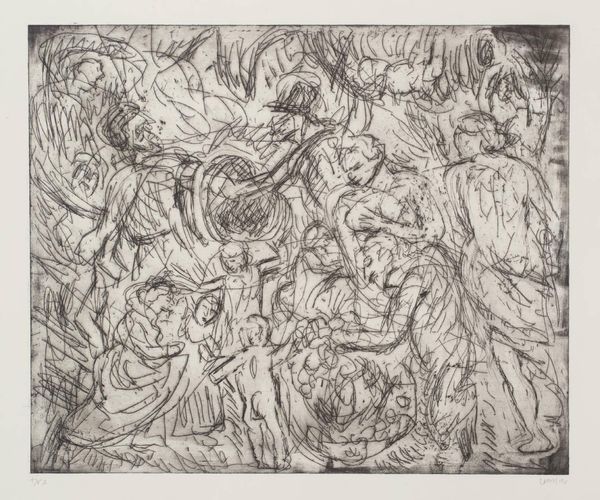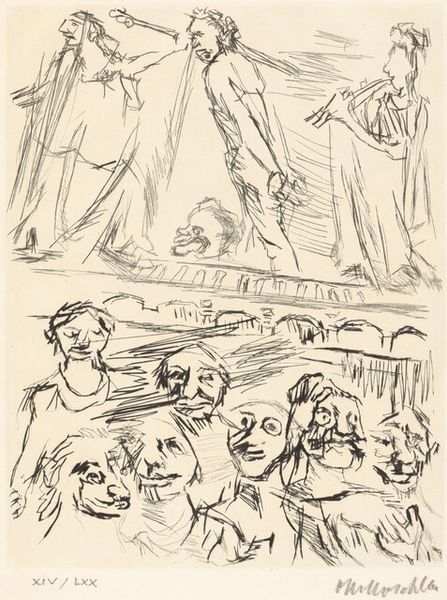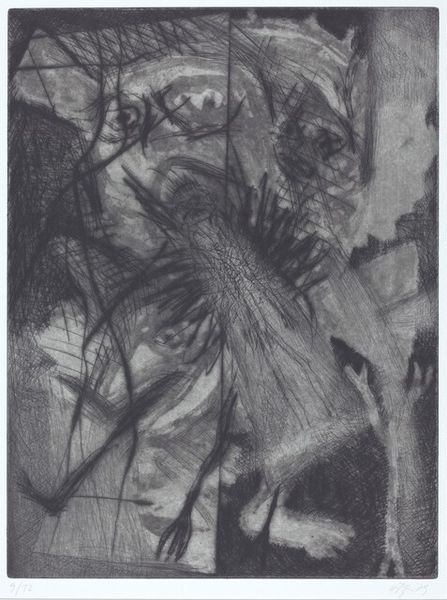
Dimensions: unconfirmed: 500 x 420 mm
Copyright: © Succession Picasso/DACS 2014 | CC-BY-NC-ND 4.0 DEED, Photo: Tate
Curator: Looking at Picasso's etching, "3 February 1970 IV (5, 6 March 1970)," I feel a sense of controlled chaos. It's like peering into the artist’s stream of consciousness. Editor: Yes, the seemingly frenetic energy speaks to Picasso's anxieties around aging and mortality during his late period. The parade of faces becomes a commentary on spectatorship, too. Curator: I find it a bit playful, though. He’s staging a drama with all these characters vying for attention, pulling faces... it's funny. Editor: But the carnivalesque atmosphere also underscores power dynamics. Who is permitted to look? Who is being observed? It raises questions about sexual politics in the male gaze. Curator: Hmm, a valid point. The etching’s composition almost feels like layers of memory and fantasy. Editor: Exactly. The piece showcases Picasso’s masterful technique but also serves as an intersectional exploration of class, gender, and power. Curator: I love how we can see such different facets in the same piece. Editor: That's the beauty of art, isn't it? The endless possibilities to challenge and reflect.
Comments
tate 9 months ago
⋮
http://www.tate.org.uk/art/artworks/picasso-etching-3-february-1970-iv-5-6-march-1970-l10-p77583
Join the conversation
Join millions of artists and users on Artera today and experience the ultimate creative platform.
tate 9 months ago
⋮
Picasso made this series of prints between 1970 and 1972 around the age of 90. The vitality and energy it displays is therefore quite remarkable. The variety of etching techniques he employed is equally astonishing. Picasso depicts scenes ranging from the theatre to the brothel. He quotes from many old masters including Degas, Delacroix, El Greco, Goya, Ingres, Manet, Rembrandt, Raphael and Velazquez, not to consume them but to invoke them and thereby perpetuate them. The series is a pantheon of heros and friends. The subjects of sexuality, old age, youth, potency and impotence are treated with an affectionate irony. The prints manifest a voyeuristic and vicarious enjoyment of carnal pleasure. Gallery label, August 2004
